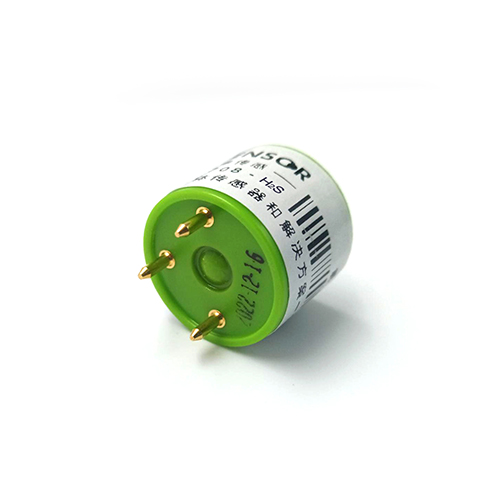Industrial h2s gas detector
What is hydrogen sulfide and why do you need a hydrogen sulfide detector?
Hydrogen sulfide (H2S) is flammable and can form an explosive mixture when mixed with air. It can cause combustion and explosion when exposed to open flames and high heat. It reacts violently with concentrated nitric acid, fuming sulfuric acid or other strong oxidants to cause an explosion. The gas is heavier than air and can spread to a considerable distance at a lower level. It will burn when exposed to an open flame.

Where hydrogen sulfide is produced
In urban construction areas, hydrogen sulfide often appears in urban sewage pipes, wells, septic tanks, sewage tanks, pulping tanks and other types of fermentation tanks, vegetable pickling tanks and other low-lying places. These places will There is the possibility of fermentation and subsequent generation of hydrogen sulfide, and the ventilation in such areas is poor compared to the outside, and it is even difficult to achieve ventilation, which creates good conditions for the continuous accumulation of hydrogen sulfide.
In industrial production sites, such as pits, pools, tanks, kettles and other limited or confined spaces. This type of area also suffers from poor ventilation. When hydrogen sulfide ferments again, it is easy for the gas to continuously accumulate, causing the concentration of hydrogen sulfide in the space to be too high. If workers do not enter these spaces before Without effective hydrogen sulfide detection, it is easy to cause hydrogen sulfide poisoning accidents.

The dangers of hydrogen sulfide
The harm to humans is mainly absorbed through the respiratory tract. Tearing, eye pain, foreign body sensation in the eye, photophobia, blurred vision, runny nose, burning sensation in the throat, dry throat, cough, chest tightness, headache, dizziness, fatigue, nausea, and confusion may occur. Some patients may have heart disease. damage.
Severe cases may develop cerebral edema or pulmonary edema.
At extremely high concentrations (above 1000mg/m3), it can lead to sudden coma and respiratory arrest within a few seconds. Acute poisoning will soon occur, and respiratory paralysis will result in death after accelerated breathing.
How to prevent hydrogen sulfide poisoning?
Prevent hydrogen sulfide gas from leaking and keep the site environment well ventilated, especially local ventilation.
If hydrogen sulfide gas leaks: on-site personnel should quickly evacuate to the upwind side of the contaminated area. Handlers must wear protective equipment and anti-virus clothing. Enter the site from the upwind side, cut off the source of fire and the source of leakage. Proper ventilation will speed up gas diffusion. Spray water to dilute and dissolve. If possible, use an exhaust fan to send the poisonous gas into the water washing tower or a fume hood connected to the tower. Leaking containers must be disposed of properly. It can only be used again after repair and inspection.
Storage and transportation precautions: Hydrogen sulfide is a flammable and toxic compressed gas. Store in a cool, ventilated warehouse. The warehouse temperature should not exceed 30℃. Keep away from fire and heat sources. Keep container tightly sealed. It is prohibited to use instruments and tools that are prone to sparks. Load and unload lightly when transporting. Transportation must follow prescribed routes and do not stop in residential areas or densely populated areas.
Personal protection: Equipped with gas masks, chemical-resistant glasses, chemical-resistant gloves, and air respirators at the job.

Industrial h2s gas detector
Hydrogen Sulfide Gas Sensor FS01701 is an electrochemical sensor specially produced by Fosensor for detecting hydrogen sulfide. It supports UART output and Modbus-RS485 output and is easy to use. This module uses precise automatic calibration and detection equipment to reduce human interference and ensure data accuracy and consistency during mass production.






